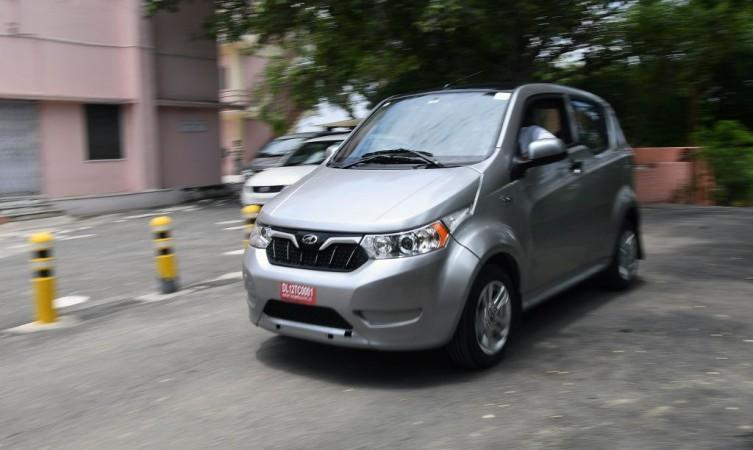![[Representational image] Electric car](https://data1.ibtimes.co.in/en/full/674572/electric-car.jpg?h=450&l=50&t=40)
With less than a week to go for the Union Budget 2018, India's budding electric vehicles industry is brimming with hope. Central Government has been aggressively pushing automakers to introduce electric vehicles these days to achieve its ambitious goal to make India run fully on EVs by 2030. In the wake of this future-oriented plans, the Union Budget is expected to introduce more sops to the EV industry.
Also read: Top 7 upcoming electric bikes, scooters in 2018
Society of Manufacturers of Electric Vehicles (SMEV), the nodal body of electric vehicle manufacturers in India, has urged the government to reduce Goods and Services Tax (GST) rate to 5 percent on all-electric vehicles and electric vehicle subsystems. SMEV realised that unreasonably high GST on key components is one of the main stumbling blocks in achieving the electric-green vehicle adoption target as visualised in Centre's Faster Adoption and Manufacturing of Electric Vehicle (FAME) scheme rolled out two years back.
"GST reduction is critical to achieve FAME targets and galvanize E-vehicle industry," said Sohinder Gill, Director, Corporate Affairs, SMEV. Gill also pointed out that government should to take immediate remedies and proactive measures to accomplish its ambitious vision of selling only e-vehicles in the country by 2030. The decisions in the Union Budget 2018 is also expected to help the industry grow at a faster pace.
Some of the e-vehicle industry's expectations according to SMEV from the government in the Union Budget 2018 are
- The launch of next phase of FAME Scheme: The Industry expects the government to announce the launch of the next phase of FAME scheme for a longer period. Due to high ownership cost of EVs in the present scenario, the approach needs to be changed and the existing subsidy module needs to be enhanced for the next 6 years as compared to the previous short-term periods.
- Reduction of GST to 5 percent on all EVs and EV subsystems
- Rebate on Income Tax for consumers adopting EVs: After adopting such policy, Norway now has 36 percent of EVs. Similar policy can be introduced in India as well as a step to encourage faster e-vehicle adoption. It will further encourage customers to purchase more EVs in the future as well.
- Indigenization of EV components: Integrated Goods and Service Tax (IGST) for all imports should be 5 percent. In addition, import duties on motors, controllers and DC-DC converters should be zero in the first 3 years and should be increased to 10 percent in four years and 20 percent by the sixth year. This will encourage local manufacturing and give time to companies to set up their local manufacturing facilities.


















